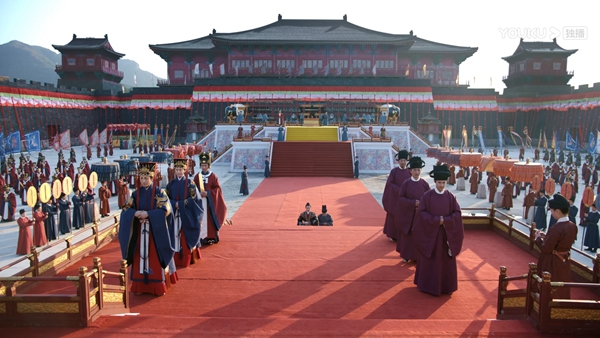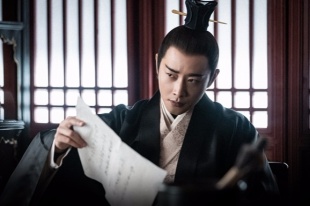A glimpse into the past


Viewers given an intriguing insight into the formalities of daily life as dynastic era plots unfold, Wang Kaihao reports.
Television or online streaming can offer tantalizing glimpses of bygone eras. Costume dramas, by definition, show the fashion of yesteryear in stunning clarity. But, aside from the clothes, social mores, politeness, manners and deference provide an elegant backdrop to unfolding plots. The Longest Day in Chang'an, broadcast over the summer, was no exception. The historical thriller, aired first on online streaming media platform Youku, put into sharp focus the intricate aesthetics of the Tang Dynasty (618-907). Viewers were gripped by the rituals, cuisine, architecture and daily life of the era.
Royal Nirvana, a 60-episode series, began airing in November also through Youku, and again assuaged the viewers' appetite for, what is literally, traditional appeal.
It tells how Xiao Dingquan, a timid prince, grows into a brave leader who is devoted to the country's stability and prosperity, and how he overcomes the various crises that arise with alarming frequency.
The story, adapted from a popular online novel, is set in a fictional ancient Chinese dynasty. However, the clothes, decorations and rituals all point to the Song Dynasty (960-1279), a period renowned for its elegant yet simple artistic style. It is generally considered a boom time of cultural brilliance and social prosperity.
Yang Wenjun, director of the series, admits that like many successful fictional historical dramas of the past decade, the producers of this show wanted to have a production that is authentic in its depiction of the time.
"It may be fiction, but historical detail is essential," director Yang said during a recent public screening of the series at a Beijing cinema. "It was essential to follow convention, particularly when we borrowed rituals from the Song Dynasty."
Only by so doing, he says, can an expression of beauty become more "implicit", and better fit into the context of traditional culture.
Yang mentions that "China is a land of propriety". This puts an onus on a director to portray ceremonial rituals, as well as the observed formalities in interpersonal relationships.





































